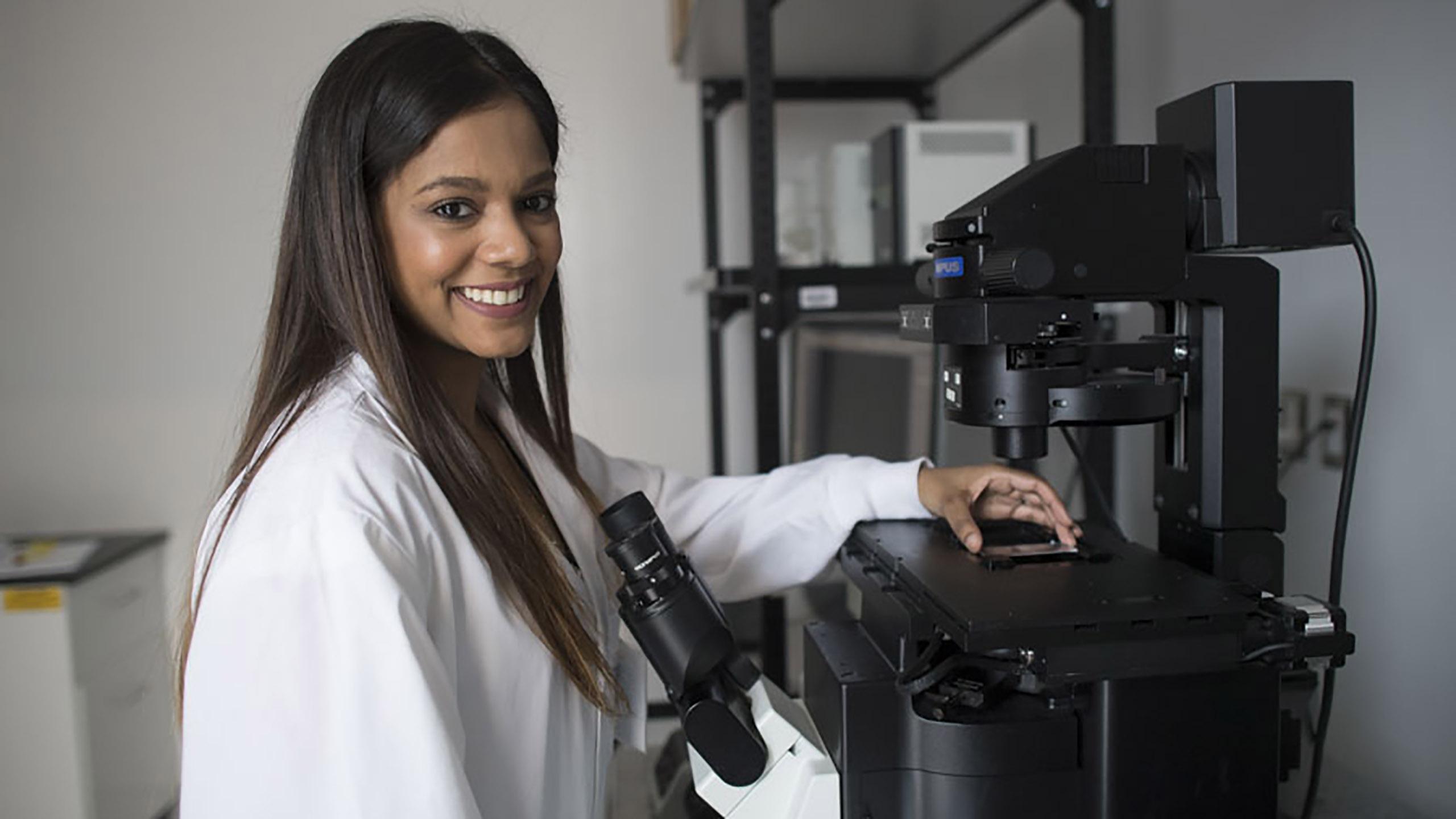By Jesse Caplan
Tracy Lackraj, who completed a PhD in Molecular Science in 2017, says that the research she’s doing will open new doors for the world of cancer treatment.
After completing her undergraduate degree in biology at Ryerson, Lackraj started as a Masters student but transferred to the PhD option after her first year.
While earning her PhD from Ryerson, Lackraj’s research was in microbiology, focusing on the type of E. Coli associated with many food-related outbreaks.
Now graduated, Lackraj is currently doing her postdoctoral fellowship at Princess Margaret Cancer Centre, where her research focuses on a type of cancer known as non-Hodgkin’s lymphoma, with specific interest applied to follicular lymphoma.
Non-Hodgkin’s lymphoma is a form of cancer that begins in white blood cells, also called lymphocytes, which are part of the lymphatic system. This system works with other parts of a person’s immune system to help the body fight infection and disease.
What sets non-Hodgkin’s lymphoma apart from Hodgkin’s lymphoma is the presence of an abnormal cell called Reed-Sternberg, which is only found in Hodgkin’s lymphoma.
“[The research team] studies the progression of the disease and how it can be influenced by a person’s genetic makeup,” said Lackraj. “How does our genetic makeup affect our response to treatment? Are there certain genetic mutations that can cause us to develop a more aggressive form of the disease?”
She explained that the ultimate goal for their research would be to create personalised patient care, a new concept that cancer centres like Princess Margaret are beginning to move towards.
“What we’re seeing is that one hundred different people can have the same form of cancer, but they don’t all respond the same to treatment,” said Lackraj.
The research would teach cancer centres how to treat each patient in way that matches their individual needs, and could lead to be effective cancer treatment.
Lackraj said her research is not focused on any particular demographic, adding that it’s very “un-bias.”
“You never know, though, maybe somewhere along the line we’ll discover that there is a correlation between a particular demographic,” she says. “That would definitely be something to look into.”













Leave a Reply